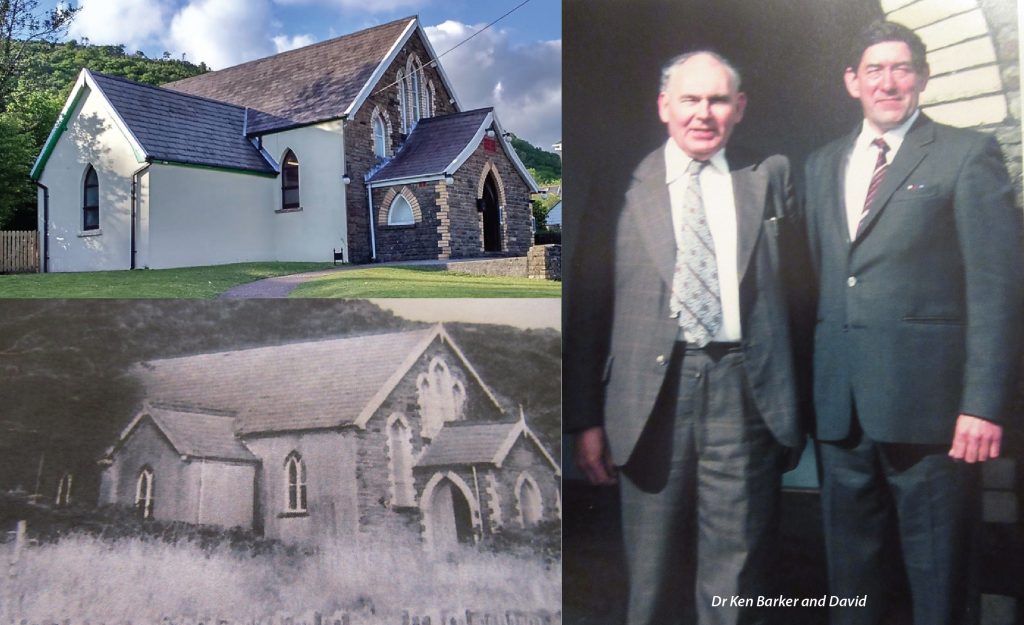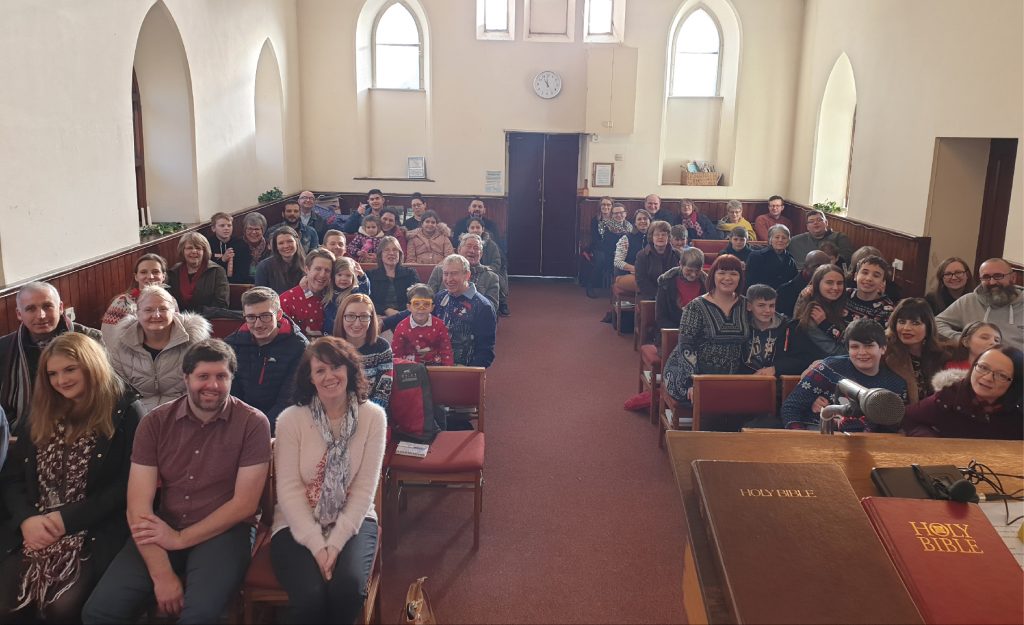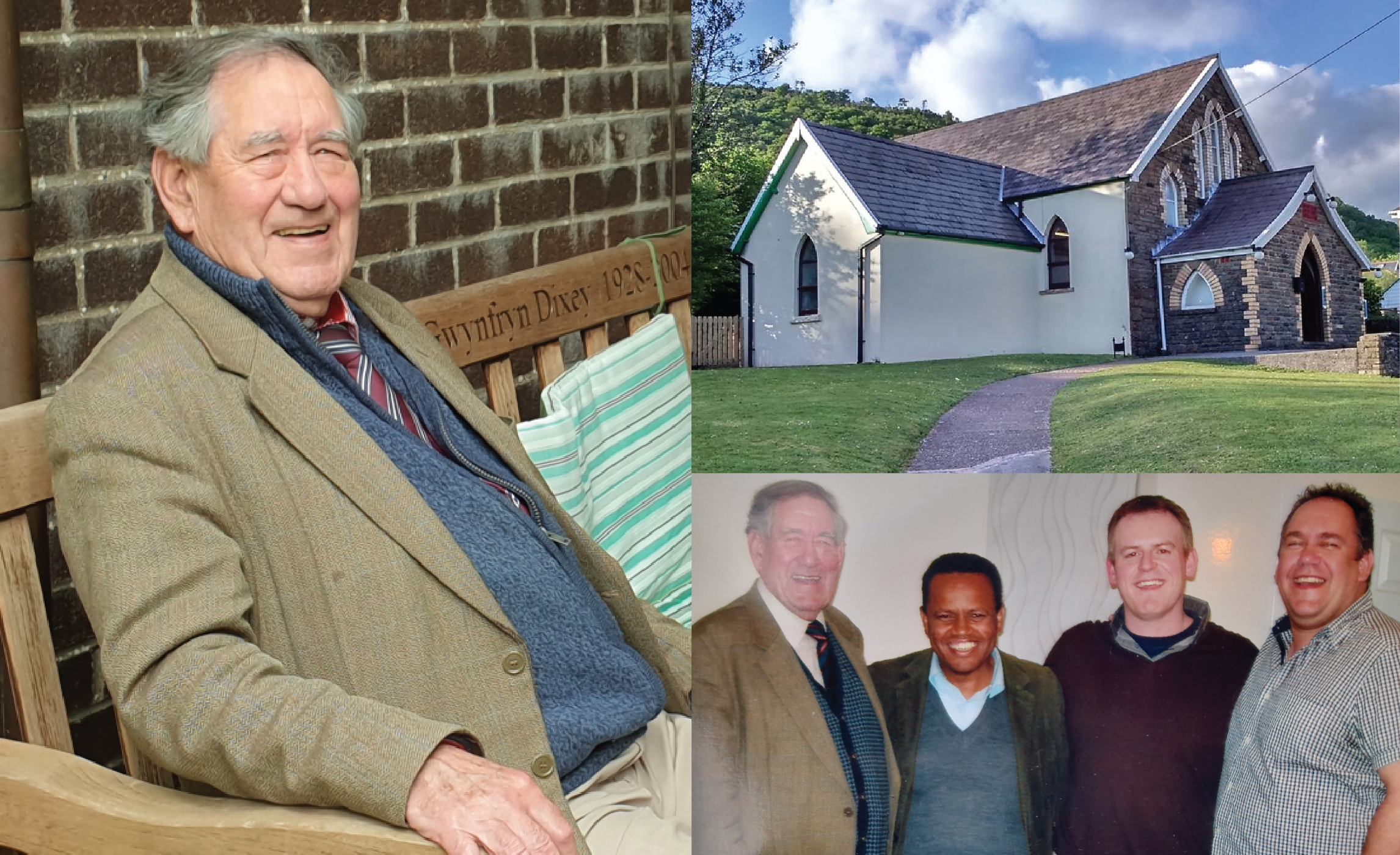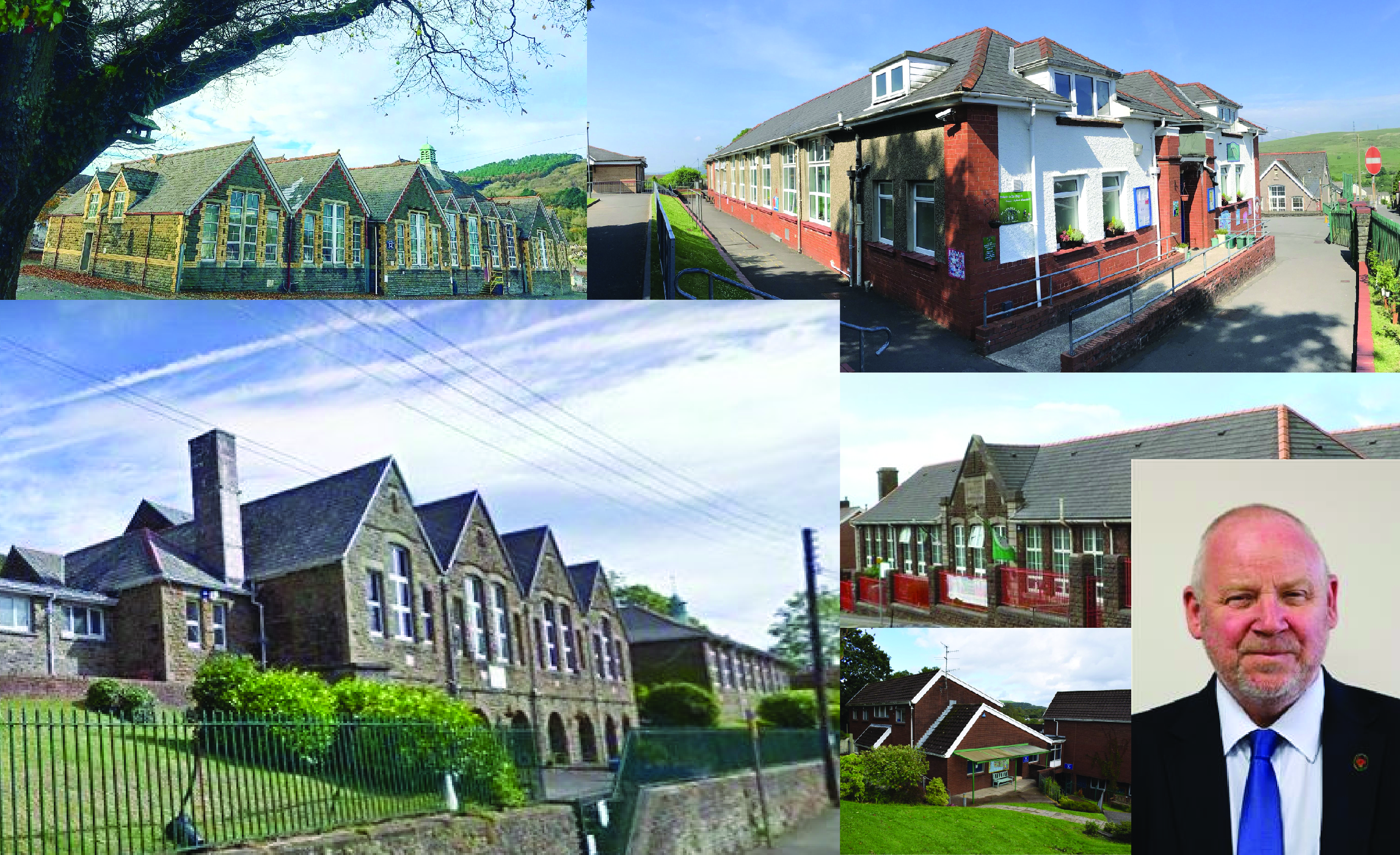PONTY PEOPLE: David Sercombe (Mount Elim)
This month I spoke with David Sercombe about his time in Pontardawe. David will be well known as a former RE teacher in Pontardawe and was also heavily involved in restoring Mount Elim Church and bringing an Evangelical Church to Pontardawe.
When was the first time that you set foot in Pontardawe?
I came in 1969. When I got married and moved to Alltwen in 1969, onto Derwyn Road. I was from Cilfrew originally. Before I got married, I took my girlfriend to the Elan Valley dams and we took a short cut through Alltwen by the triangle. I said, ‘I fancy living here’. At the time, I thought Alltwen was just that little bit which we drove through but she found a house in Alltwen and after we got married we moved in. We lived there until 1990 and then moved back into Cilfrew to look after my mother.
What made you spend so much time here?
It had very friendly people, it was surrounded by wonderful people. There was a lot of Welsh to be heard and it was a lovely little place to bring up the children.
Teaching Pontardawe
You were a teacher in Cwmtawe too; how did you get into that?
That is a long story. I studied theology in London and I was basically thinking that I was going overseas as a missionary but nothing happened and so I ended up going into teaching; teaching Religious Education. When I wasn’t teaching RE I would teach other things as well. Sport, I always enjoyed rugby, cricket, and athletics they were the main sports. I was very happy in Cwmtawe both staff and pupils were very friendly. including a few Wales caps. Rob Jones and Bleddyn Bowen who was captain of Wales.
Has Religion always been important to you?
We were brought up on religion. We would go to the chapel 3 times on a Sunday and mid-week too. Once we got to the end of Christmas we started practicing for the Gymanfa Ganu on Easter Monday. It has always been important to me yes.

Mount Elim Church
Mount Elim Church will be 40 years old next year. How was it formed?
As a chapel it is well over 40 years old. It started in 1885 with about a dozen or so people from Adulam Chapel who wanted to start a cause in Ynysmeudwy. Farmers and labourers would meet in Herbert Street originally, then they built Mount Elim in 1886. But I think what you are referring to is when we moved there.
Back in 1974 Dr Ken Barker, a family GP here in Ponty, came to see me one day and said ‘What do you think about starting an evangelical church in ponty?’ A few friends got together, and we decided that we would plan 6 monthly meetings in the winter of 1974-75, just to test the water and see if we had sufficient support. At the end of the last one, a few gathered around, people asked about doing it next year, but one man said ‘why wait 6 months and then start? Why not have it weekly starting now?
And so we did. We started meeting weekly at the Moose Hall which was by the traffic lights, where Little Steps is now.
Obtaining Mount Elim
What happened then was that we found the old Mount Elim chapel. It had been active until the death of the pastor wo was known as Davies Mount Elim. After he had passed away, they kept occasional meetings until the late 60s but it had been empty for about 10 years before we got the deeds.
It needed a lot of work done to it as it was in a bad state. It took us 2 and a half years before we had repaired it enough to be able to use it properly. But even then, there were no toilets for the first 10 years or so. We put in a new floor, we re-painted the whole building. After my time there, they put a new roof on it and changed the windows. We opened it May 1st 1982 and it has been consistently maintained it over the years since then.
Evangelical Church Pontardawe
And how did it take off?
It was fantastic, what happened was when we started in the Moose Hall, we had about 10 people. 5 couples and back then 4 of the 5 wives were all called Joan. Only Dr Barker’s wife was not called Joan. We had about 30 meeting there overtime. When it came to open in Mount Elim, a lot of those people had previous commitments in other churches on a Sunday and so we didn’t have many.
It started with just Dr Barker’s family, my family and a few friends really but it built up. I suppose we got to about 50 or 60 on a Sunday night but it took time to get there. It is about the same now.
What is an Evangelical Church?
‘Evangelical’ basically means ‘Good News’ (just like ‘Gospel’ which also means ‘Good news’). We believe that Jesus came to preach good news to the world and to die on the Cross for our sins. We find this good news in the 4 gospels and also the rest of the Bible and believe that the whole of the Bible is God’s holy word.
Churches Closing
How do you feel seeing churches closed and in disrepair?
It is sad, an indication of the demise of the Christian faith in Britain. I remember as a student seeing that 100 Methodist churches were closing every year. All the churches have gone through it, Baptist, Methodist, Church in Wales etc.. they are all taking advice and we are all trying to keep something going. It is the culture which seems to be going around the Western world in many ways sadly.
Having said that, the church is growing in parts of the UK and certainly across the world. We spent time in the Congo after I retired from teaching, and I have visited Ethiopia six times. The church is growing rapidly there.
I went out to Ethiopia in 2007 and met Mulugeta who is a coordinator of the Christian Brethren Churches there. From 1986 he had, under God, established a remarkable ministry. There were about 90 churches when I went there in 2007, 135 in 2009 and well over 200 for my last visit in 2012. They have set up 29 new churches during lockdown.
In China, there are more Christians than members of the Communist Party. The Government acknowledge 120 million Christians.
21st Centaury
Does the church need to modernise at all?
I think that we are very good with technology. We have always had an interest in people, we keep the same message and we keep up to date. We have meetings for all ages from babies to senior citizens.
The last 12 months, it has been chaotic with lockdowns but we keep all our Sunday meetings going on Zoom. Busy Bees (our toddler group), Clwb Ponty (for primary school children), Impact Youth (for secondary school children), Prayer Meeting and Women’s Meeting – it is the same, we keep them going the best we can on Zoom.
We also have a load of material up on YouTube, ‘Mount Elim Church Pontardawe’. Some short videos there for just five or ten minutes but then some longer ones, 50 mins, a big, long selection. Mostly in English and a few in Welsh. We are a diverse group from different types of backgrounds but what unites us is our common faith in Jesus Christ.
We would give a very warm welcome to any new vistors, Croeso cynnes i bawb.

What is your favourite thing about Pontardawe?
A very nice happily married life.
One thing you would change about Pontardawe?
Let’s put it this way, there has to be something bad to want to change something.
Ton-y-Botel – Mount Elim Link
DID YOU KNOW?
Ton-y-Botel (Tune in a Bottle) also known as Ebenezer was composed by the first organist at Mount Elim Church
It is a famous Welsh hymn tune composed by Thomas John Williams A.T.S.C. (1869–1944) and extracted from the second movement of his Anthem “Goleu Yn Y Glyn” (Light in the Valley).
First published in 1897 in the periodical “Yr Athraw” (The Teacher) vol.71 in Tonic Sol – Fa notation and first published in 1900 in the hymnal “The Baptist Book of Praise”.
The famed English composer and music historian Ralph Vaughan Williams (1872–1958) referred to it as one of the greatest hymn tunes. As the musical editor Vaughan Williams included it in “The English Hymnal” in 1906.
Now Published in 195 Hymnals worldwide including “The New English Hymnal”. Ebenezer means “Stone of Help” in the Bible. The tune is named after Ebenezer Chapel in Rhos near Pontardawe, because he married a woman from the Chapel.
He was born in Llangiwg, Ynysmeudwy and lived in Llanelli, South Wales from 1903. He served as organist and choir director at Mount Elim Baptist Chapel for fifteen years.
The myth that the tune was discovered in a bottle on a Llyn Peninsula beach in North Wales was published in the Daily Mail in 1902.
It has affectionately been known as Ton-y-Botel ever since and is even referred to as “Ebenezer, Ton-y-Botel” on his grave headstone, this also includes the first music phrase and below it the text “Dyma Gariad Fel Y Moroedd”



